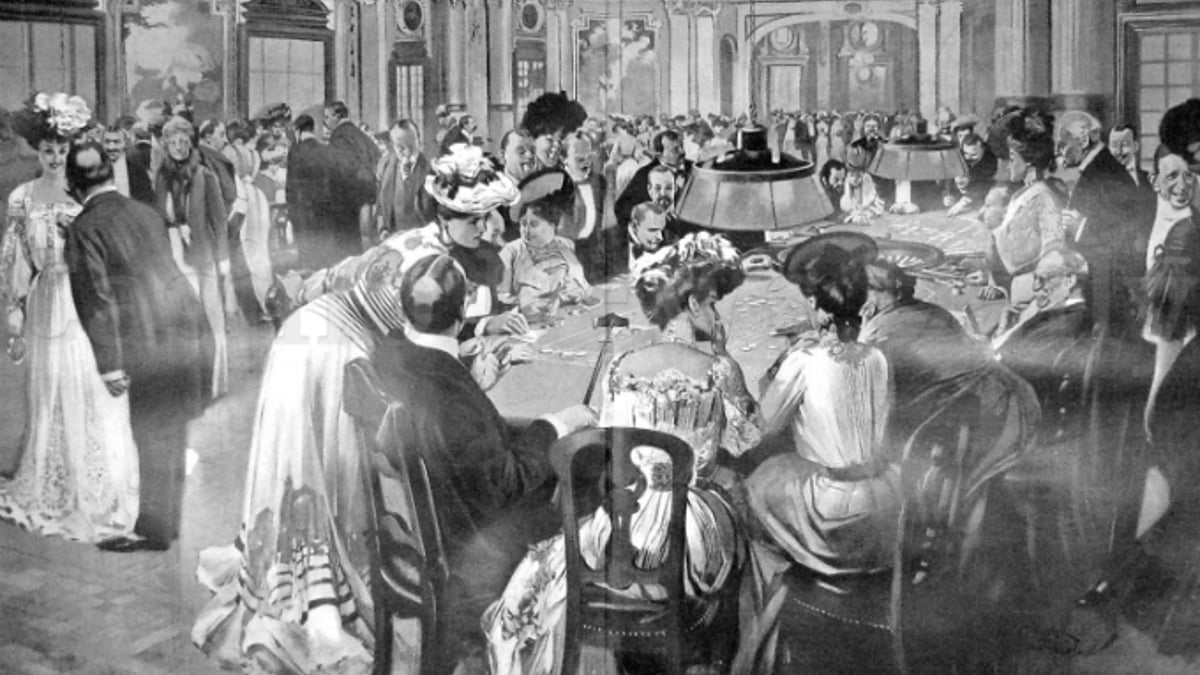
A gaming establishment where you use roulette, card and dice tables, slot machines and other gaming equipment to play games with stated cash prizes or other prizes on real estate.
Origin of the casino
The first casino to appear in Europe is Il Ridotto, which opened in 1638 in Venice[ 1 ]. By order of the government, a gambling house was opened in the left wing of the church of San Moise to control gambling during the great spring carnival. Il Ridotto introduced a strict dress code and high stakes to limit the pool of players to representatives of the aristocracy.
The next step in the development of gambling establishments is considered to be 1765. By order of Cardinal Giulio Mazarin, a casino was opened in France to replenish the treasury of Louis XIV. Around the same time, the first roulette tables appeared in France. Roulette, the invention of which is variously attributed to Blaise Pascal and François Blanc, quickly conquered Europe - by 1780, almost no gambling establishment was complete without it. In 1850, several large gambling establishments appeared in Great Britain, Germany and Italy. During this period, governments banned gambling several times. In 1873, almost all casinos in Europe were closed, and Monte Carlo, which was not subject to the ban, became the capital of gambling.
In the United States, the first gambling establishments appeared only at the beginning of the 19th century. The center of the game was initially the city of New Orleans [ 2 ], then St. Louis, Chicago and San Francisco. The role of casinos was played by lounges. Gambling began to flourish, especially blackjack and poker. The coming to power of President Andrew Jackson and his ban on the existence of gambling establishments for almost a decade gave most casinos an illegal status. At the beginning of the 20th century, the ban on gambling came into force in almost all states. The exception is Nevada, where gambling houses begin to be built in Las Vegas and Reno. Gambling establishments move to Cuba, where the main visitors were American citizens. By the mid-40s, there were only small casinos and hotels in Vegas. In 1946, the Bugsy Siegel Flamingo gaming complex opened, laying the first stone in the construction of one of the world's gaming centers. In 1978, Atlantic City received a license to open a casino, which today ranks second after Las Vegas among gambling cities in the United States. Your guide to playing smart and saving money at online casinos is here - https://tradevenue.se/artiklar/casinobonusar-din-guide-till-att-spela-smart-och-spara-pengar-62351.
Advantages of playing at a casino for real money
When you take a closer look, the advantages of playing at an online casino over land-based casinos really start to add up. In addition to the obvious convenience of playing at home or on the go, online games have many other advantages. Knowing them will help you choose the way to play that suits you.
There may be those visitors to online casinos in Ukraine for real money who are hesitant to play online, perhaps because they are afraid of technology or do not know how it works. But those who decide to play at an online casino are often immediately satisfied with everything it has to offer. They do not feel that they are missing out on anything by not visiting a casino. You may feel the same way.
You may also like this article: Growing online casino industry demands more security
